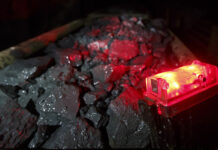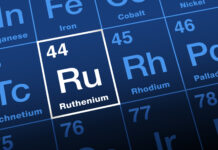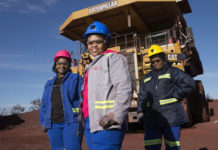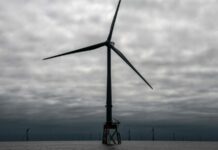
[miningmx.com] — STRIKING unions at De Beers may be interested to hear that the diamond miner is expected to report record sales of some $3.5bn when it reports half-year numbers on Monday.
Says RBC Capital Markets: “The sixth sight of the year closed this week and sightholders suggest the total could have been some $840m with price increases ranging around 10%. We are looking for record sales of $3.5bn.’
De Beers is offering unions a 7.5% wage increase and a once-off payment of R2,500 per worker. Unions, however, are holding out for their original 15% wage increase demand. “At this point in time, it’s too early to say how many workers are on strike,’ Lesiba Seshoka, spokesman for the the National Union of Mineworkers (NUM) told Reuters. NUM will feel justified in calling for a substantial real increase.
The positive view on De Beers is supported by Goldman Sachs, which like RBC Capital, has a buy recommendation on Anglo. “The diamond market is experiencing very favourable pricing in 2011 which Anglo shareholders will see through its shareholding in De Beers,’ it said.
RBC is forecasting an operating profit of $403m in the first half for Anglo’s De Beers’ stake which represents a 54% increase year-on-year, and some 43% ahead of consensus. The diamond market is looking even better in the second half of the year, analysts say.
This is all good news for Anglo American, which owns 45% of De Beers, as well as a 64% in Kumba Iron Ore which is also shooting the lights out. Kumba Iron Ore reported R28.23 in half-year share earnings this week, in the upper end of the company’s own guidance in its trading statement of R26.80 to R28.70/share.
As a result of this, and the imminence of production from Anglo’s Barro Alto nickel mine, the Los Broncos expansion and Kolomela (formerly Kumba’s Sishen South project), analysts remain bullish on Anglo American over the likes of BHP Billiton or Xstrata. Yet Anglo has been a buy for a number of analysts for months.
As one analyst observed: “It’s actually a compliment when an analyst puts a “sell’ recommendation on a share because it must mean the market in general is seeing value in the share. When there’s a buy on a stock, it means no-one seems to want you.’ Anglo’s 50% earnings exposure to South Africa, and the related political risks, may explain some hesitancy to pile into the group’s shares, and explain too the impulse for Kumba Iron Ore to seek diversifying production in west Africa.
Chris Griffith, CEO of Kumba Iron Ore, told media on July 21, the company was on “a fishing expedition’ as it sought prospects outside of South Africa. This will again raise the rather awkward situation of a listed subsidiary competing with its parent firm as Anglo, too, is seeking iron ore deposits.
The Australian Financial Review reported earlier this week that Anglo might make a competing bid for Sundance Resources, an Australian-listed firm with iron ore deposits in Cameroon. Chinese firm Hanlong is believed to be close to concluding a $1.5bn for Sundance – which had its entire board wiped out last year when its members perished in a plane accident over the Congo – but an interloper is rumoured.
But perhaps there’s no conflict at all if one interesting yet currently unsubstantiated conspiracy theory is true. And that’s the view Anglo will use Kumba Iron Ore has its vehicle for iron ore acquisitions in west Africa because the capital burden that comes with developing the mines will surely bring the curtain down on Kumba’s impressive dividend, annualised at 8%.
Were that to happen, you can see shares in Kumba Iron Ore falling through the floor which would make it a cheap and tasty takeout option for the remaining shares in Kumba Anglo doesn’t own.











